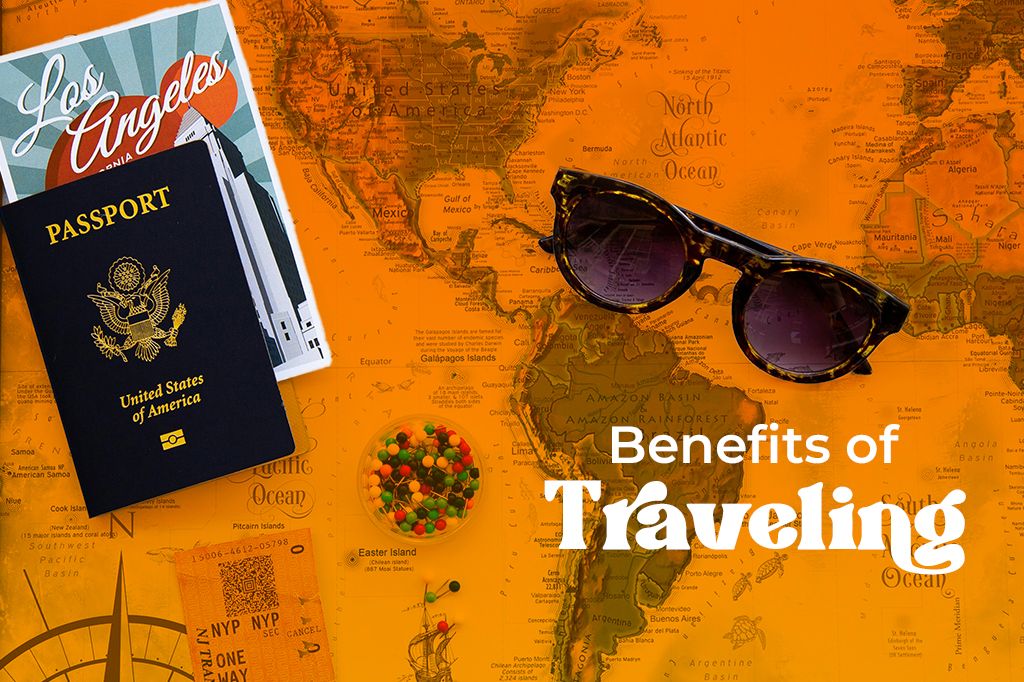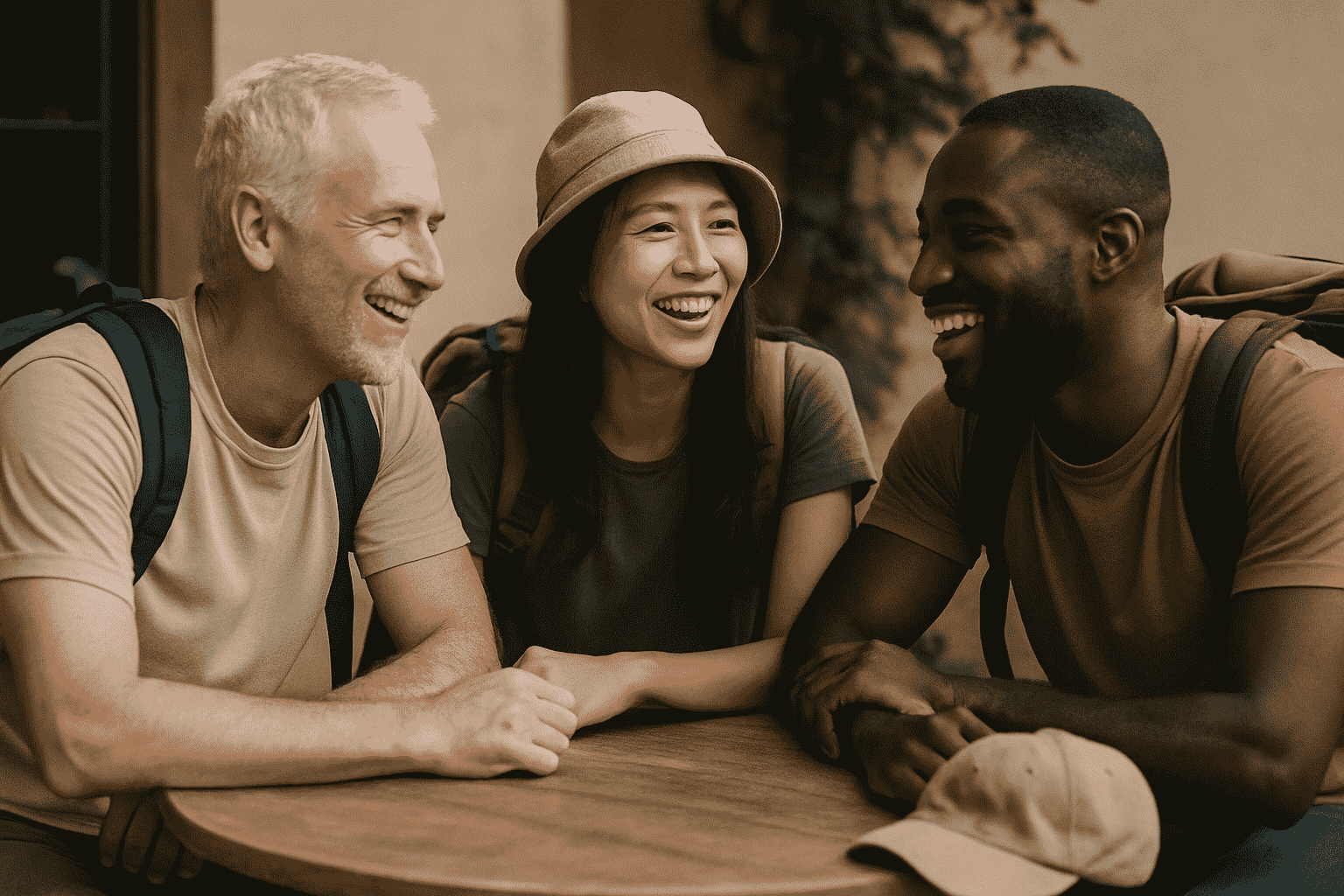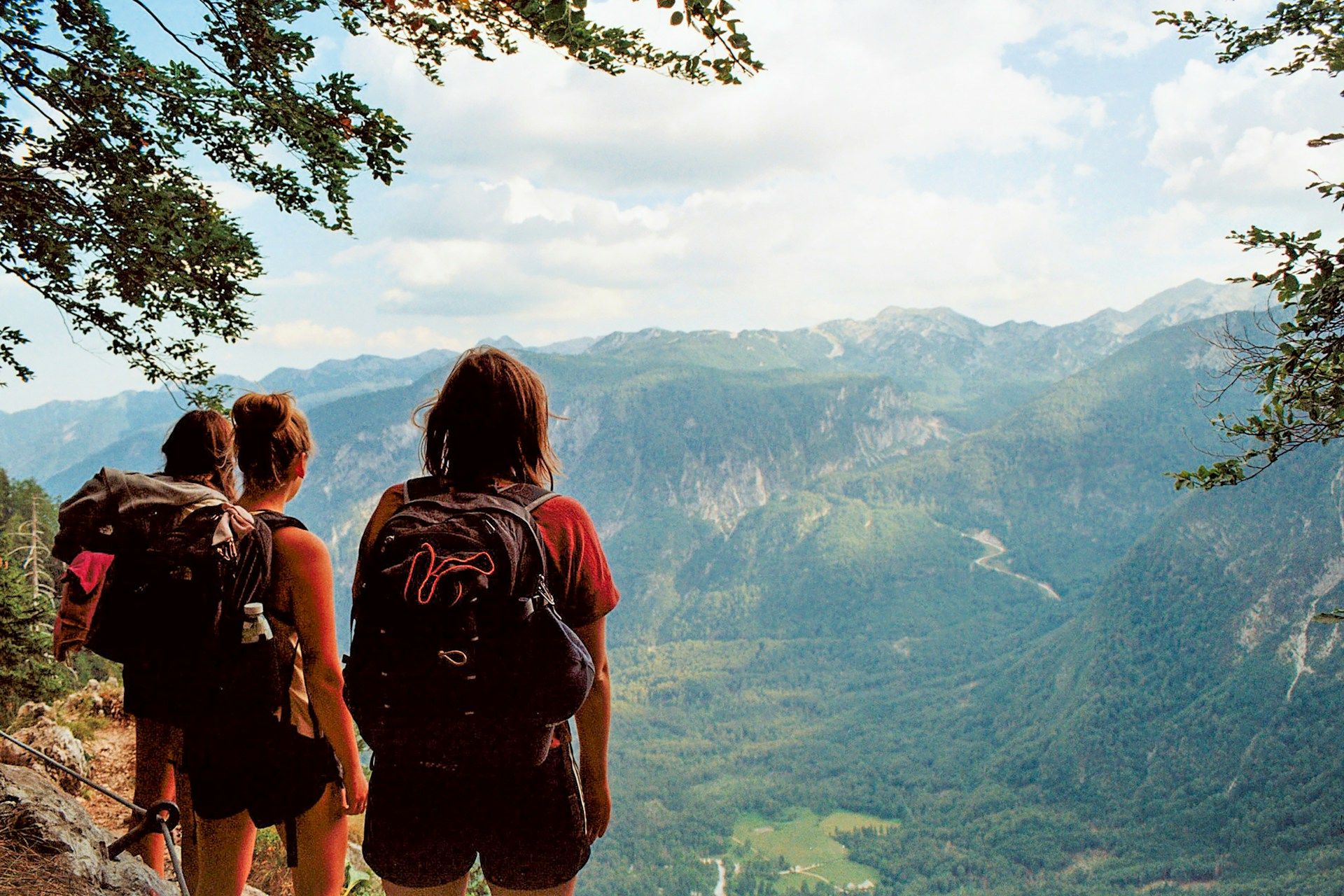We often think of travel as ticking places off a list – seeing the Eiffel Tower, lounging on a sunny beach, hiking a famous trail. Those moments are great, truly. But travel does something much deeper inside us. It changes how we see the world, how we see ourselves, and even how we handle life back home.
It’s easy to talk about souvenirs and photos, but the real magic happens within. Many people find that the most significant benefits of traveling aren’t found in guidebooks; they are felt in the heart and mind long after the suitcase is unpacked. Let’s explore some of those powerful, life-altering changes that happen when we step out into the world.

Picture by GeoJango Maps on Unsplash
Travel is most rewarding when you can stay present—focused on where you are, not on how to stay online. But practical needs don’t disappear just because you’re somewhere beautiful. Whether you’re checking directions, finding a place to eat, or simply letting someone back home know you’re okay, a stable connection can quietly make things easier. Yoho Mobile eSIM gives you free access to mobile data without roaming fees or SIM swaps—so you can spend less time troubleshooting, and more time being exactly where you are.
10 Benefits of Traveling
Travel Expands More Than Just Your Worldview
You hear it all the time: “Travel broadens your horizons.” But what does that really mean? It means more than just knowing that people in other countries eat different foods or speak different languages. It’s about understanding why. When you step outside your daily routine and the culture you grew up in, you realize your way of doing things isn’t the only way, or even necessarily the best way for everyone.
Maybe you visit a place where life moves much slower, and you see the value in that pace, questioning your own constant rush. Or perhaps you see a community solving a problem in a way you’d never considered. This isn’t just learning facts; it’s like your brain gets rewired. Suddenly, problems at home might look smaller, or solutions might appear where you saw none before, showcasing one of the practical benefits of traveling. It’s a deep shift in perspective that sticks with you.
Imagine someone from a very individualistic culture visiting a village where everything is shared communally. At first, it might seem inefficient. But after seeing the strong bonds and mutual support, they might return home realizing the power of community in a way they never truly appreciated before. That’s perspective rewiring in action.
Curiosity Reignited: Seeing Life with New Eyes
Remember being a kid, when everything was fascinating? A simple bug, a puddle, the way sunlight hit the wall? Travel has a way of bringing back that childlike wonder, which is one of the delightful benefits of traveling. When you’re in a new place, your senses are heightened. Everything is different – the smells, the sounds, the light, the way people interact. You start noticing small details again.

This isn’t just about grand sights. The thrill of discovery can happen anywhere. Even a street corner can feel magical.
Think about it. At home, you might walk down the same street every day and barely notice your surroundings. But on a trip, even a simple street corner in a foreign city can feel full of possibilities. What’s down that alley? What does that sign say? Who are the people sitting at that café? Your curiosity switches on.
Try bringing this mindset home. Once a week, take a different route to work or explore a neighborhood in your own town you’ve never really looked at. Pretend you’re a tourist. You might be surprised by what you discover right under your nose. Cultivating this curiosity is one of the lasting benefits of travel.
Escape, Yes — But Also Emotional Healing
Sometimes, we travel to get away from something – stress, heartbreak, burnout, or a major life change like losing a job or a loved one. And while escape is part of it, travel can be much more than a distraction. It can be a powerful tool for emotional healing.
Being in a completely different environment forces you out of the loop of sad thoughts or worries that might circle endlessly at home. The challenges of navigating a new place – figuring out transport, ordering food, finding your way – demand your attention and energy, giving your mind a break from the pain. The beauty you encounter can also be incredibly soothing.

Many people find that travel helps them process difficult emotions. A long train ride watching landscapes blur by can be meditative. Achieving a small goal, like climbing a hill for a stunning view, can rebuild a sense of competence when you feel lost. It’s not about running away from problems, but about gaining the space and perspective needed to face them differently upon return.
In fact, clinical psychologist Dr. Theresa Schwaiger explains that travel can serve as a valuable tool in processing emotional pain, particularly grief. She references the “dual process model” of grief, which suggests that individuals benefit from alternating between confronting and avoiding their loss. This physical movement mirrors the internal journey of healing, providing both distance and perspective. As Dr. Schwaiger notes, "Travel can provide space to do both. For example, we might go away and experience something really beautiful, think back to the lost person, and experience sadness that they’re not there, too.
Solitude That Doesn’t Feel Lonely
The idea of traveling alone can seem scary to some, filled with images of loneliness. But for many, solo travel offers a unique kind of solitude that’s incredibly fulfilling. It’s a chance to be truly alone with your thoughts, without the usual demands of work, family, and social obligations.
In this quiet space, you get to reconnect with yourself. What do you want to do today? Eat that weird fruit? Spend hours in a small museum? Sit by the river and just think? You make the rules. This independence builds confidence and self-reliance. It’s not loneliness; it’s freedom and a chance for deep reflection. Here we also share this guide with 8 solo travel tips..
Mini-Story via Business Insider: Jennifer McGuire, a single mom of four, decided to take a solo road trip through New England for her 50th birthday. Over 21 days, she visited places from her past—towns where she had lived, studied, or spent time in her younger years. She stopped in upstate New York, revisited her college town in Vermont, and spent time in Massachusetts and Maine. Instead of planning the trip around tourist attractions, she focused on places that held personal meaning. The goal wasn’t to sightsee, but to reconnect with who she was before becoming a mother. For the first time in years, she wasn’t making decisions for anyone else. The trip gave her space to reflect, remember who she had been, and feel more like herself again.
Breaking Routine to Remember Who You Are
Our daily routines are comfortable, but they can also put us on autopilot. We play certain roles – employee, parent, partner, friend – and sometimes, the lines blur, and we forget who we are underneath it all. Travel yanks us out of those routines.
When you’re far from home, stripped of your usual titles and responsibilities, you get a clearer picture of your core self. You see how you react to challenges, what truly makes you happy or anxious, and what you value when no one else is telling you what you should value.
Distance provides perspective. Looking back at your life from thousands of miles away can make problems seem smaller and priorities clearer. You might realize that the things stressing you out don’t actually matter as much as you thought, or you might discover a passion you want to pursue more seriously when you get back. This clarity is one of the most valuable, yet often unexpected, benefits of traveling.

Photo by Darya Jum on Unsplash
Cultural Fluency That Goes Beyond Facts
You can read books and watch documentaries about other cultures, but nothing compares to experiencing them firsthand. Real cultural fluency isn’t just knowing dates or customs; it’s developing empathy and understanding on a human level.
It’s about navigating a bustling market, sharing a smile with a vendor even if you don’t share a language, watching a local family interact, or understanding the rhythm of daily life in a place completely different from your own. These experiences build bridges in your mind, illustrating one of the profound cognitive benefits of traveling. You start to see similarities beneath the surface differences.
Textbooks might tell you about a tradition, but experiencing it – the sounds, smells, emotions involved – teaches you in a way reading never can. You learn the nuances, the unspoken rules, the things that make a culture truly unique. This lived experience fosters a deeper respect and understanding for people from all walks of life.
Food as the Fastest Way Into a Culture
Food is so much more than just fuel when you travel. It’s history, identity, celebration, and sometimes, even a language all its own. Sharing a meal is a universal way to connect, and trying local dishes is one of the quickest and most enjoyable ways to get a taste of a culture.

Think about the memories tied to food: that incredible street food taco, the fragrant soup shared with a new friend, the strange fruit you were brave enough to try. These aren’t just meals; they become markers of your journey, stories you tell for years. Eating like a local opens doors and conversations.
Tip List: How to Find Non-Touristy Food Spots
-
Ask locals: Chat with your guesthouse owner, a shopkeeper, or even someone on the street. Ask where they like to eat.
-
Look for lines: If a place is packed with locals, especially during meal times, it’s usually a good sign.
-
Wander away from main attractions: Often, the best and most authentic spots are a few blocks away from the major tourist squares.
-
Visit local markets: Markets are fantastic places to see local ingredients and often have food stalls serving delicious, cheap eats.
-
Be adventurous (within reason): Try something you can’t easily get back home.
Creativity Unlocked
Feeling stuck in a creative rut? Travel might be the key to unlocking new ideas. New sights, sounds, smells, experiences, and perspectives act as powerful stimuli for the brain. It shakes up your usual ways of thinking and opens you up to inspiration.
Many writers, artists, musicians, and entrepreneurs credit their travels with sparking some of their best ideas. The change of scenery, the exposure to different aesthetics, the overheard conversations, the quiet moments of reflection – all of it can feed the creative soul. Whether you’re working on a specific project or just looking for fresh energy, travel often delivers.
Think of painters capturing foreign landscapes, writers finding stories in bustling city streets, or chefs bringing home new flavor combinations. Travel provides the raw material for creativity to flourish. Seeing how others express themselves through art, music, or design can also spark your own imaginative thinking.
People You Were Meant to Meet
One of the most magical aspects of travel is the people you meet along the way. Sometimes, these encounters feel almost fated – brief conversations that change your perspective, shared adventures that forge instant bonds, or friendships that last a lifetime despite geographical distance.
Whether it’s another traveler exploring the same path, a local who shows you unexpected kindness, or the owner of a small café who shares their life story, these connections enrich your journey immeasurably. They remind you of the fundamental goodness and shared humanity that exists across borders. These chance encounters are often cherished long after the trip ends, representing core benefits of traveling focused on human connection.

Gratitude for What You Left Behind
Ironically, one of the biggest benefits of traveling is how it makes you see your own home with fresh eyes. Being away helps you appreciate the things you might take for granted – whether it’s reliable public transport, access to clean water, the comfort of your own bed, or the support network of friends and family. You might also gain a new appreciation for your own culture.
Seeing your culture from an outside perspective, or explaining it to someone new, can highlight aspects you never consciously considered. You might recognize strengths you hadn’t valued or weaknesses you hadn’t noticed. This doesn’t mean judging; it means understanding your roots more deeply. Returning home often comes with a renewed sense of gratitude for the familiar, balanced with the new perspectives gained abroad.

Photo by Febe Vanermen on Unsplash
Bonus Section: The Secret Reasons We Don’t Talk About
Not all motivations for travel are noble or Instagram-worthy—and that’s precisely why we don’t often talk about them. Sometimes, we travel to quietly escape roles that have begun to feel suffocating. In new places, far from familiar eyes, we’re free to explore identities we’ve suppressed or test-drive a version of ourselves we secretly wish to become. Travel can also be a silent response to internal crises—a failing relationship, the dull ache of burnout, or the weight of a life that no longer fits. It offers temporary relief, not as a solution, but as a pause.
For some, it’s about reclaiming control in a world where choices feel limited; for others, it’s the only socially acceptable way to be alone without having to explain why. For creatives, it can be the antidote to a frustrating block, shaking loose new ideas. These reasons rarely show up in travel brochures, yet they quietly shape some of our most transformative journeys.
